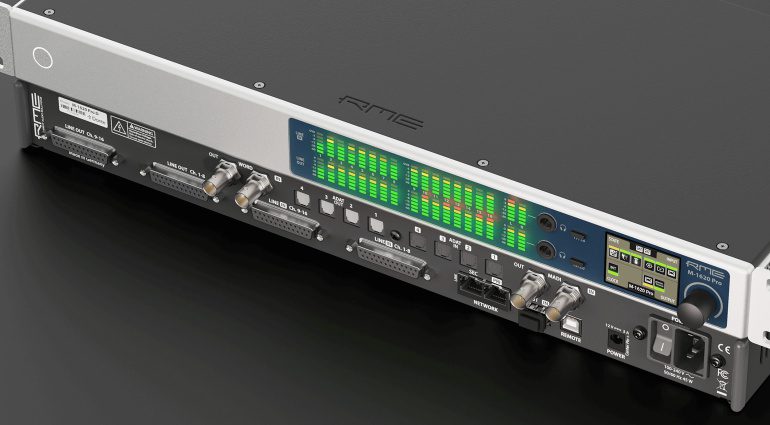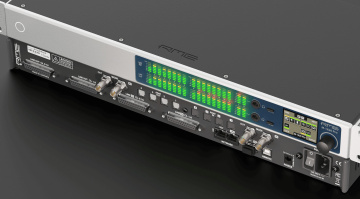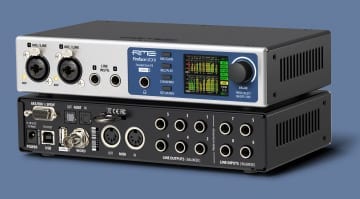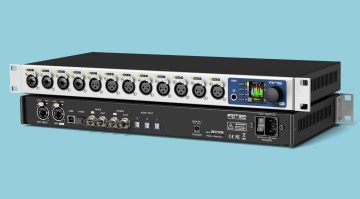RME M-1620 Pro: Flexible Conversion with MADI, Milan, and ADAT
Flexible Pro AD/DA conversion from the market leader.
The RME M-1620 Pro is a powerful digital converter with a wide range of connectivity options for both live and studio applications.
For years, RME has been one of the most respected names in converter technology, offering quality solutions that meet the standards of professionals worldwide.
RME M-1620 Pro
With the M-1620 Pro, you get 16 channels of analogue line signal conversion split across four D-Sub ports for the inputs and outputs. Unlike the M-1610 Pro, the front panel has clear LED I/O metering for each channel and two headphone outputs next to the main display.

Meanwhile, digital connectivity includes four ADAT I/O channels, a set of MADI coaxial I/O ports, and two Milan-compatible RJ45 ports for AVB networks. In addition, the network ports are Dante-compatible, and Wordclock I/O is also included.
The M-1620 Pro supports up to 64 channels at 24-bit 192kHz, 96 channels at 96 kHz, and 128 channels at 48 kHz sample rate. This gives you the flexibility to work at different industry standards used in recording studios and live sound situations.
What’s more, the power supply provides both AC and DC formats, and there is the option to add a redundant power supply to meet the standards of large touring music acts and engineers. Furthermore, there is optional expandability in the form of MADI Optical SFP I/O.
Pricing and availability:
The M-1620 Pro is currently available for order from Thomann in both Dante and Milan compatible versions.




Overall, the M-1620 Pro offers top-quality AD/DA conversion that meets the industry standards of many pro applications in recording and live audio environments.
As with many of the RME interfaces, the SteadyClock FS technology provides stable, reference-class clocking. Moreover, all network signal routing is easily manageable via a web interface.
More about the RME M-1620 Pro:
- Official Product Page
- More from RME
- Shop RME Interfaces on Thomann
*Note: This article about the RME M-1620 Pro contains affiliate links that help us fund our site. Don’t worry: the price for you always stays the same! If you buy something through these links, we will receive a small commission. Thank you for your support!

 4,5 / 5,0 |
4,5 / 5,0 | 










